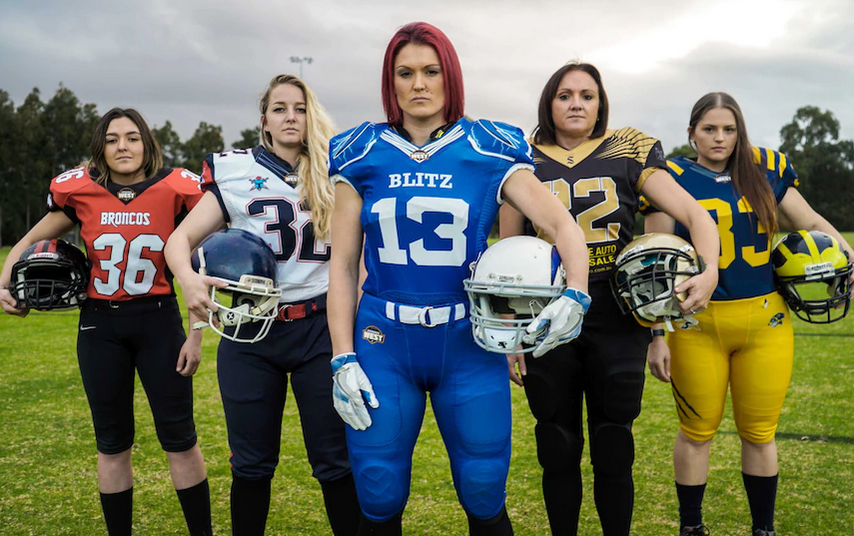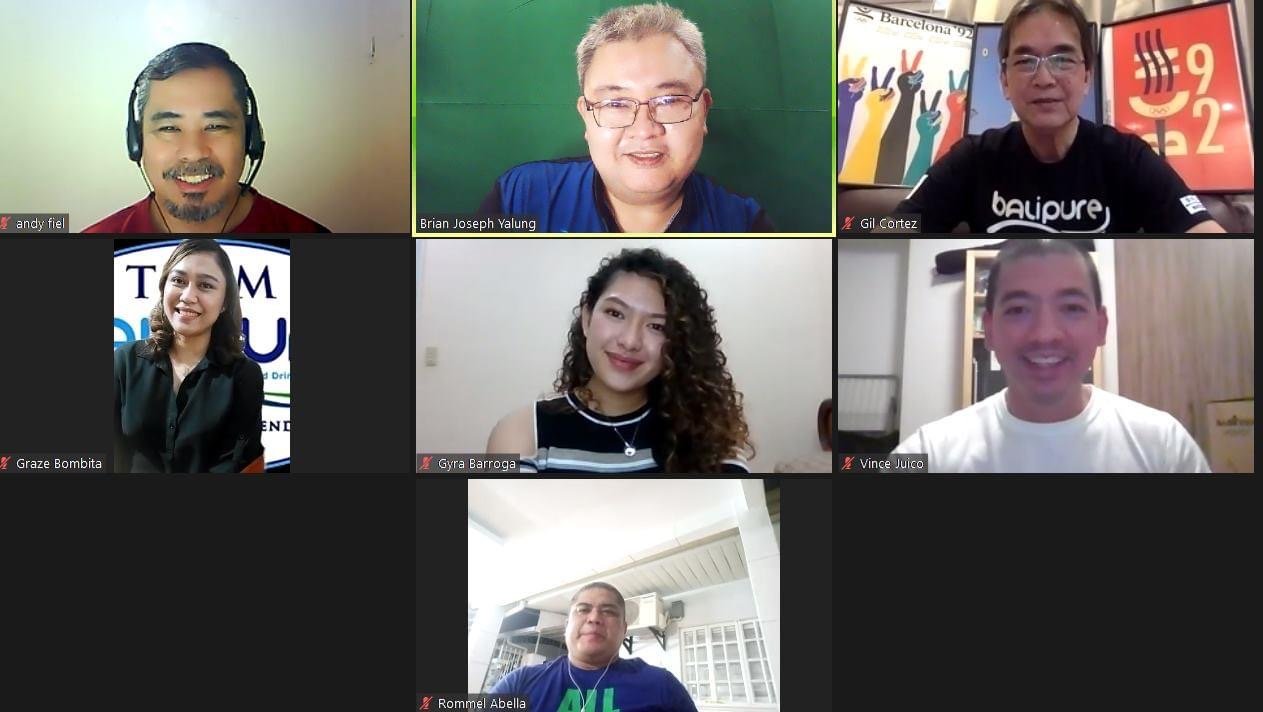by Vincent Juico
Over the long weekend, I came across a Sports Illustrated Daily Cover article, “How One Women’s Football Team Took Control Away From the Men” by Britni de la Cretaz and Lyndsey D’Arcangelo. As I was doing my research on women’s American Football, there’s a lot of history behind the effort to establish women’s American Football.
The earliest recorded attempt at doing it was as early as in the 1970s, according to the aforementioned article, “The Pacesetters moved under SKW’s ownership in 1974. Wallace served as the team’s general manager.
That year, many of Friedman’s other teams joined forces with SKW’s teams and a few independent women’s football outlets around the country to form a single, unified group: the National Women’s Football League. It was the first official professional women’s football league in U.S. history and consisted of seven teams: the Los Angeles Dandelions, Toledo Troopers, California Mustangs, Dallas–Fort Worth Shamrocks, Detroit Demons, Dallas Bluebonnets and Columbus Pacesetters.”

After the 2002 season, the National Women’s Football League was pressured by the National Football League to make a name change and for some of the teams to change their team logos because of the strong semblance to those NFL teams.
Presently, there are three major women’s American Football sports organizations, two are in the US and one in Great Britain. Possibly, there may be others as well.
The Women’s National Football Association (WNFA), formerly the National Women’s Football League, the Women’s National Football Conference, and British-American Football’s Women’s National Football League which, obviously, has not received a request from the US National Football League or NFL to change their name.
The Women’s National Football Conference, according to their website, “The Women’s Contact league started in 2012 and was originally played in the 5v5 format called the Sapphire Series.
As the women’s contact game grew over the years, the league was extended to a two-tier system with a Division One and Division Two in 2016, each with a North and South conference. After seeing further growth in participation in 2017/18, all divisions were moved to the 7v7 format which is the format that we play today. The league currently has 17 active clubs located across Great Britain – making the sport widely accessible to athletes across the country.
In 2020, the Sapphire name was dropped in favor of a more conventional name for the league, the National Women’s Football League (NWFL), and the season was moved to the summer period to avoid a crossover with the winter sports schedules.
As well as the annual 7v7 league, the NWFL also provides women with the opportunity to compete in a 11v11 format. The NWFL Super 11s series offers female athletes the opportunity to play the more traditional version of the sport that we see in the NFL and NCAA.
The series has had various guises over the years and has previously acted as trials for the GB National team. In its current form, the series consists of three full-day training sessions, culminating with a North vs South game.
Since its inception in 2012, the Women’s Contact game has experienced incremental growth over the years. As we continue to achieve sustainable organic growth, the overall objective is to move to full-field football in the near future with plans to move to the 9v9 format for the 2022 season. There are also hopes to extend the women’s league to full 11v11 in the future.”
As for the Women’s National Football Conference, their website says, “WNFC has revolutionized sports by bringing women’s tackle football to the world stage for the first time.
Our business not only fills a critical gap in the most popular sport in the world, but we are also inspiring women and girls to dream big, build big, and hit hard. We are building a sports entertainment, apparel, and lifestyle company that will change the way the world sees women.
On Dec 18, 2018, Adidas launched a groundbreaking partnership with the WNFC as a part of their “She Breaks Barriers” campaign. They launched their inaugural season in 2019 with 15 teams. With one season of play under their belt, the WNFC became one of the fastest-growing sports brands in the country.
The league has been featured by CBS, Iheartradio, NFL Network, NBC, ABC, FOX4, Yahoo Sports, Sports Illustrated, and is recognized as the leader in bringing sponsors, media, and new fans to women’s tackle football.
The WNFC supplies athletes, coaches, and fans with the most entertaining, high-quality, most competitive brand of football for women in the country. Fueled by passion and a plan to deliver professional women’s tackle football to the world.
Players in the WNFC are offered state-of-the-art protection on the field and ample opportunities off of it through partnerships and alliances developed by the WNFC leadership team.
In 2021, the WNFC featured 20 teams, playing a 10-week (spring 2021) season, broadcasting globally on Vyre Network; culminating with the championship game in Dallas, TX (Aug 2021).”
Catherine Masters, Founder of the NWFA, was inducted into the American Football Association’s Semi-Pro Football Hall of Fame in 2006.
And the dream continues for women’s American Football to be recognized as a professional sport.
“The Pacesetters’ story and women’s American Football for that matter, is one of resistance that is relevant today when it comes to the way women athletes are still trying to gain agency, power, and investment for their leagues. We see it happening with the National Women’s Soccer League, with players demanding better from the league, its team owners and its coaches. We see it happening in the Women’s National Basketball Association, where players used their voices and platforms to enact positive change within the league via a new collective bargaining agreement, increasing player salaries and benefits. And we see it in the National Football League, where more and more women are becoming part of the fold as coaches, scouts and team owners.”
Leagues of their own indeed.
- Svitolina wins 2026 ASB Classic - January 14, 2026
- Sports in 2026 - December 30, 2025
- Reap what you sow - October 31, 2025



![Stephen Curry [photo credit: Wikimedia Commons | TechCrunch]](https://sportsbytes.com.ph/wp-content/uploads/2021/04/TechCrunch_Disrupt_San_Francisco_2019_-_Day_1_48835097887_cropped-scaled.jpg)